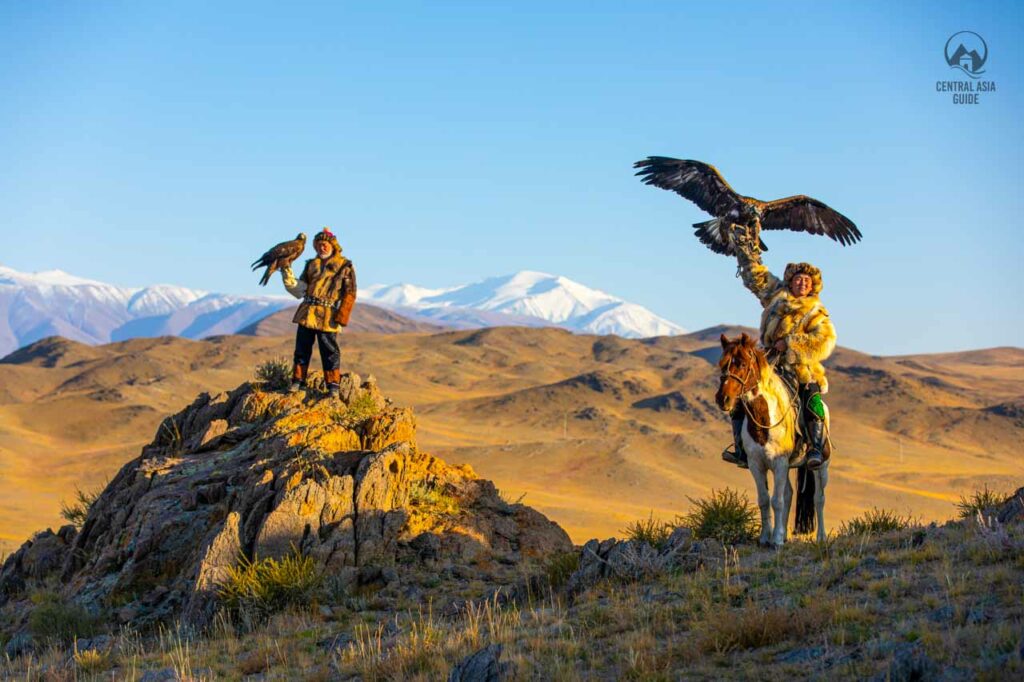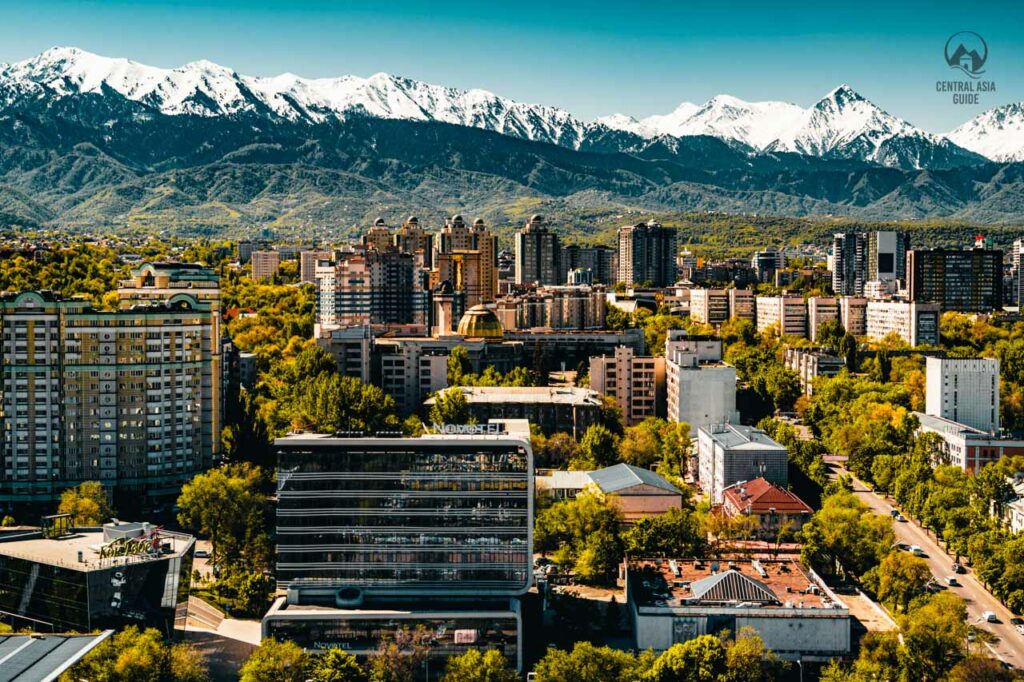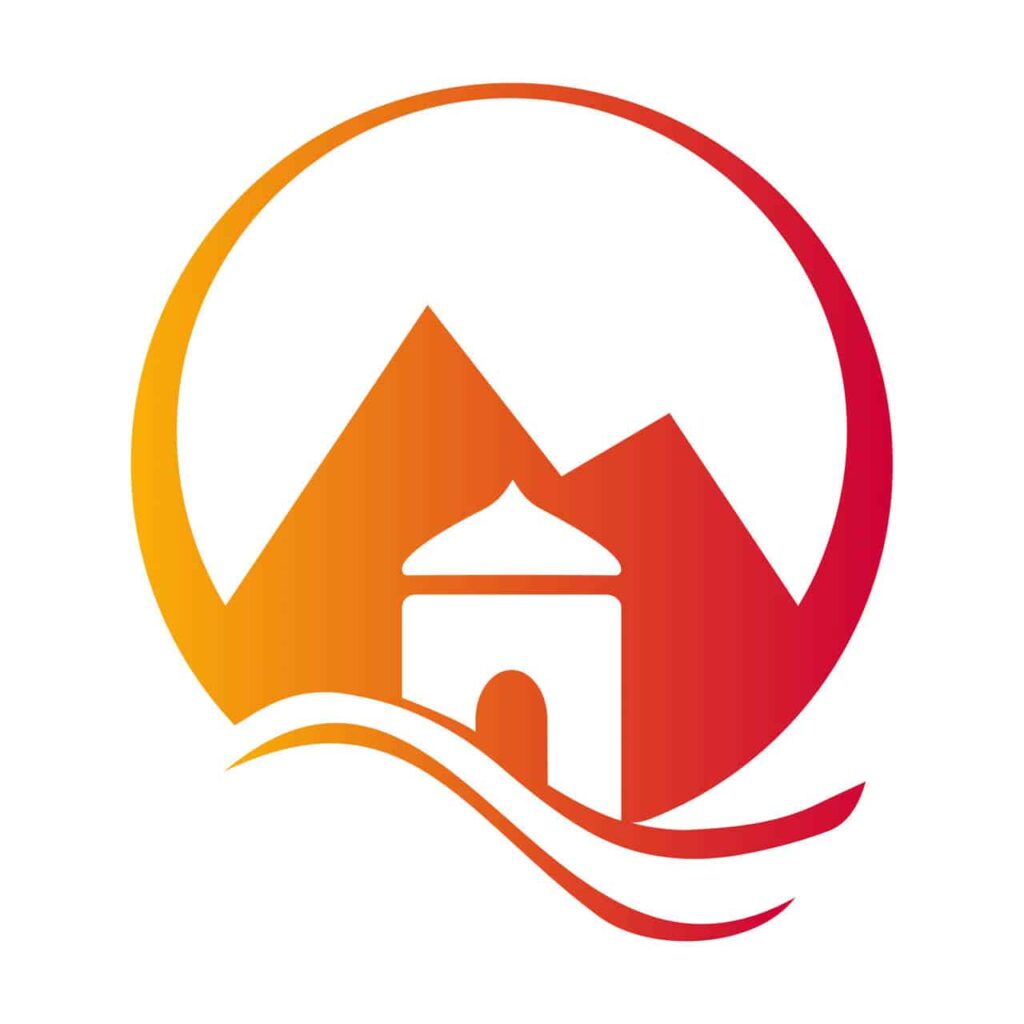Kazakhstan Tours
Tours in Kazakhstan
Kazakhstan is known for its vast steppes but not many know that it offers so much more from snow capped mountains and mountain lakes to deserts and ancient monuments of the civilizations from the past. The easiest and most popular area for tours focuses around Almaty and the mountain areas nearby the old capital. Eastern Kazakhstan offers the possibility to see the mysterious Altai mountains and the Southern and Western Kazakhstan has a more Medieval & ancient history and very different landscapes from the Aral Sea to deserts and semi-deserts.
If the tours offered below do not meet your needs, please don’t hesitate to contact us. We can also organize a tailored tour in Kazakhstan or combine your Kazakhstan tour with the neighboring Stans.
Mangystau Tours
Private Kazakhstan Tours 2025
Kazakhstan Day Tours from Shymkent
Kazakhstan Tour Information
Experience the breathtaking landscapes, rich history, and vibrant culture of Kazakhstan, the largest country in Central Asia. From Astana’s futuristic skyline to Almaty’s bustling streets, Kazakhstan offers a unique mix of modern attractions and ancient heritage. Roam in the stunning Charyn Canyon, and enjoy the serene beauty of Big Almaty Lake, and the vast wilderness of the Kazakh Steppe.
If you’re interested in Silk Road history, nomadic traditions, adventure tourism, or eco-travel, Kazakhstan has it all. Enjoy horseback riding in the steppes, hiking in the Tien Shan Mountains, or exploring UNESCO-listed sites like the Mausoleum of Khoja Ahmed Yasawi. With its welcoming hospitality, diverse cuisine, and unique cultural experiences, a Kazakhstan tour promises an unforgettable journey through one of the world’s most fascinating destinations.
Safety during Kazakhstan Tours
Kazakhstan is one of the safest travel destinations in Central Asia, known for its friendly locals, political stability, and low crime rates. While it’s a welcoming and secure country for tourists, it’s always smart to take basic safety precautions. As in any big city, staying alert in crowded areas like bazaars, public transport, and popular tourist attractions can help prevent petty theft and pickpocketing.
The major cities of Almaty and Astana are modern, safe, and tourist-friendly, but it’s best to avoid walking alone in isolated areas at night. Keeping your valuables secure, using official taxis, and being mindful of local customs and travel guidelines will help ensure a smooth and stress-free experience.
If you are planning adventure travel in Kazakhstan, such as hiking in the Tien Shan Mountains, exploring the Silk Road, or taking a desert safari, it’s recommended to travel with a licensed tour guide for safety and a well-organized experience. Stay informed about weather conditions, transportation safety, and local regulations will also help you make the most of your Kazakhstan travel experience.
Visa requirements for Kazakhstan Tour
Kazakhstan is still a friendly destination, and most tourists enjoy visa-free entry into the country. Recently, some changes have been made to its visa policy that has further opened the country to international visitors.
Citizens of the USA, UK, EU member states, Canada, and Australia can stay for up to 30 days without a visa. While travelers from China and India get 14 days of visa-free access. For those who need a Kazakhstan tourist visa, an e-visa system saves them from having to apply through the embassy.
Best time for Kazakhstan Tour
The best time to visit Kazakhstan is during the shoulder seasons of April to May and September to October, when temperatures are mild and landscapes are vibrant. For those interested in outdoor adventures like hiking or exploring the Altai Mountains, the best is the summer months from June to August offer warmer temperatures and clear skies.


What to wear for Kazakhstan Tour
Kazakhstan is a modern nation where individuals have the freedom to dress as they prefer, especially in urban cities like Almaty and Astana. ls typically wear contemporary Western attire, so tourists can feel comfortable doing the same. However, in more conservative rural areas and when visiting religious sites, both men and women should go for modest clothing that covers the shoulders and knees. This means avoiding long shorts. Women may consider carrying a scarf to cover their heads when entering mosques or other religious establishments, demonstrating respect for local traditions.
Kazakhstan experiences a wide range of weather conditions throughout the year. Summers can be intensely hot, especially in southern regions, while win are notably harsh, with temperatures often plunging freezing. To adapt to these variations, layering is recommended for the guests.
Comfortable footwear is another crucial, particularly if you are planning to hike or visit the natural sights of Kazakhstan. Given the country’s vast terrains and sometimes uneven paths, sturdy walking shoes or hiking boots are advisable.
Internet in Kazakhstan
Kazakhstan has the best internet services in the region. However, sill, some news channels and websites are not accessible because of political reasons, as the government had taken measures to restrict access to certain internet content, such as independent media and human rights sites.
Tourists can easily buy SIM cards at airports or local shops. Mobile data is inexpensive, with plans starting as low as $10 for 5GB.
Photographing and drones during Kazakhstan Tour
In Kazakhstan, photography is generally permitted, but certain areas may be restrictions in the objects such as military installations, government buildings, airport facilities, and border areas.
Regarding drone usage, you can bring a drone into Kazakhstan without a license. However, operating a drone requires obtaining a permit from the Civil Aviation Committee.
Kazakhstan Tours & border zones
If you are planning trekking tours in Kazakhstan, it’s important to be aware of the country’s border zones, particularly near China and Kyrgyzstan. Those areas are considered sensitive and entering them requires obtaining a special permit from the local authorities.
Central Asia Tours including Kazakhstan
Kazakhstan Travel Information

Money & costs

Safety
Entry & exit

Best time to go

Health

Money & costs
Money & costs
The official currency in Kazakhstan is the Tenge (KZT), and the country boasts the most advanced banking system in the region. ATMs are widely distributed across major cities, including banks, hotels, and shopping centers; however, it’s important to note that most ATMs dispense cash only in the local currency. Exchange facilities are readily available in every city, offering services for various currencies such as the US dollar, Euro, Russian ruble, British pound, Chinese yuan, and Kyrgyz som. Exchanging US dollars or Euros for Tenge is a straightforward process in banks and exchange offices.
In addition, international credit cards find acceptance in the majority of hotels, restaurants, and large supermarkets. It’s worth noting that smaller merchants usually do not accept cards and often operate with limited cash reserves which can cause problems in providing the proper change from payments.

Safety
Safety
The current security situation is presently stable but bears the potential for deterioration. Recommendations encompass the following:
- Always carry an original form of identification, such as a driver’s license or passport, as law enforcement patrolling the streets may request verification.
- Steer clear of any demonstrations and political assemblies. In the event of becoming aware of nearby violence or unrest, it is advised to promptly vacate the premises.
- Incidents of petty crimes, such as pickpocketing, bag thefts, and vehicle break-ins, are prevalent. Safeguard valuables discreetly and exercise vigilance, particularly during nighttime. When approached by a police officer, driver, or official, insist on the presentation of identification.
- Avoid solitary strolls and arrange transportation in advance. Refrain from utilizing unofficial taxi services.
- While on trains, ensure the security of personal belongings, including passports and travel documents, and utilize locks for compartments, especially on night trains.
- Exercise caution against online scams.
- Smoking, including the use of electronic cigarettes, is proscribed in proximity to schools, playgrounds, medical facilities, and public spaces (such as museums, public transportation, airports, train stations, and subterranean passages), as well as within vehicles carrying children.
- The possession or usage of illegal substances may result in protracted incarceration.
- Photography is restricted in the vicinity of military installations, border areas, airports, and specific official buildings. The sharing or publication of images that may be deemed disrespectful to religion, culture, or national symbols is discouraged.
- Same-sex relationships are not unlawful but may encounter varying degrees of tolerance, particularly outside major urban centers nationwide.
- Exercise caution by never leaving consumables unattended or entrusted to the care of unfamiliar individuals.
- Road conditions exhibit disparities across the country, with well-maintained infrastructure in major cities and their environs, while rural areas may experience neglect in road upkeep.
Entry & exit
Entry & exit
Kazakhstan implements diverse visa regulations tailored to passport holders from various countries. Comprehensive information regarding visas in Kazakhstan and whether they are requisite for your visit can find here.
Upon entry into the country, there may be a requirement for registration. For those entering visa-free, it is essential that their passport remains valid only for the duration of their stay. However, if you are utilizing a visa, it is imperative that your passport remains valid for the standard six months beyond the conclusion of your intended stay. To secure a tourist visa from the Embassy of Kazakhstan or to obtain an electronic visa, the initial step is procuring a Letter of Invitation (LOI).

Best time to go
Best time to go
Kazakhstan is characterized by severe weather conditions, especially during the winter months. The country experiences extreme climates in both summer and winter, with the most intense heat and cold being felt in the central steppe and around the capital, Astana. Temperatures can soar above 40°C in June-August and plummet to -20°C in December-February. Optimal times for visiting Kazakhstan are during the spring (April-June) and autumn (September-November) to steer clear of scorching summers and snowy winters.

Health
Health
Prior to embarking on your journey, verify that your destination has the capability to offer the required medical assistance you may need. Ensure you possess suitable travel insurance that covers on-the-spot treatment or unforeseen medical evacuation. It’s noteworthy that medical staff often lack proficiency in English.
Non-prescription medications are easily obtainable. If you require prescription medications, a valid prescription from a local physician or a foreign prescription translated into Kazakh or Russian will be necessary.

Page updated 15.5.2024